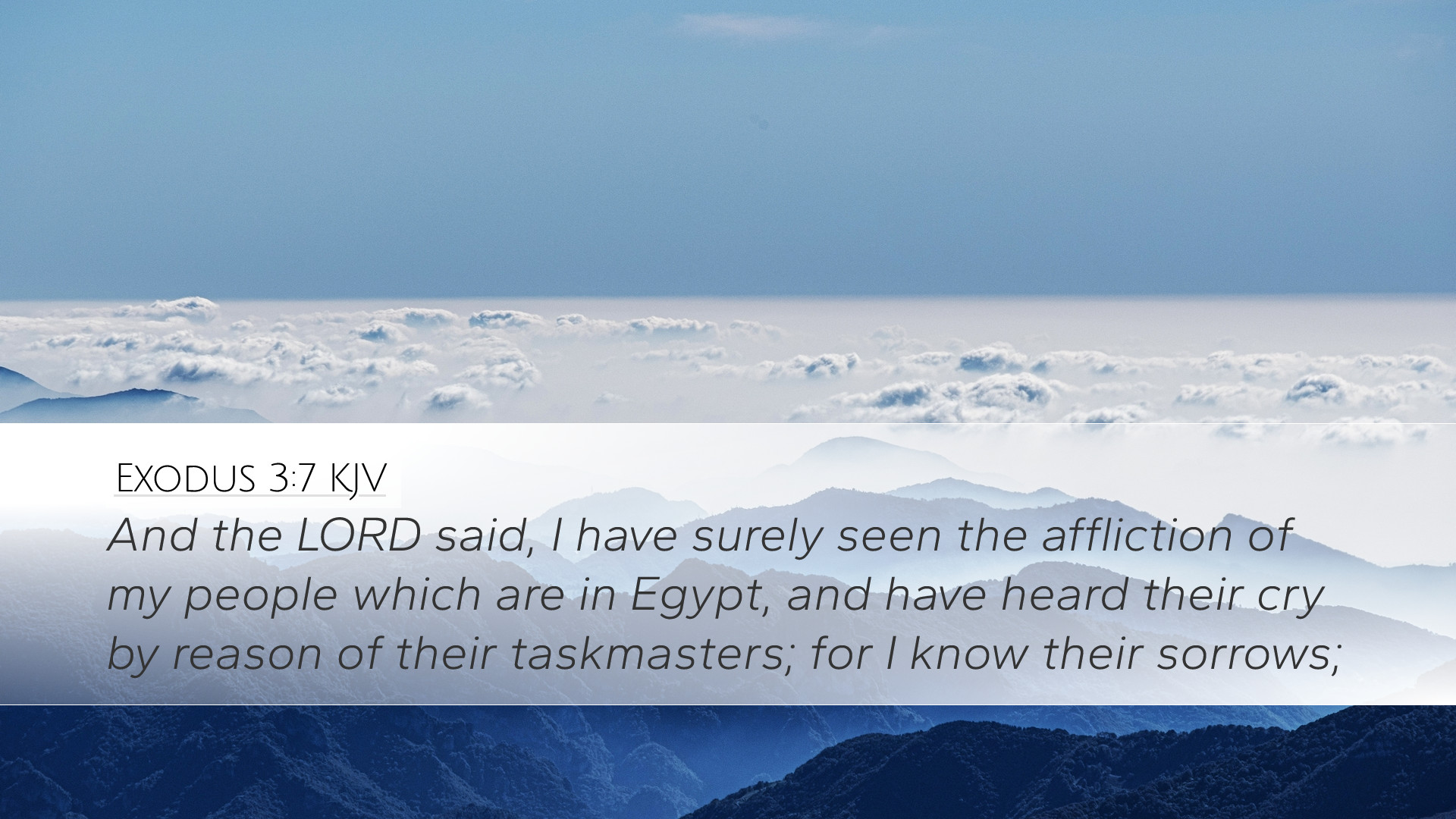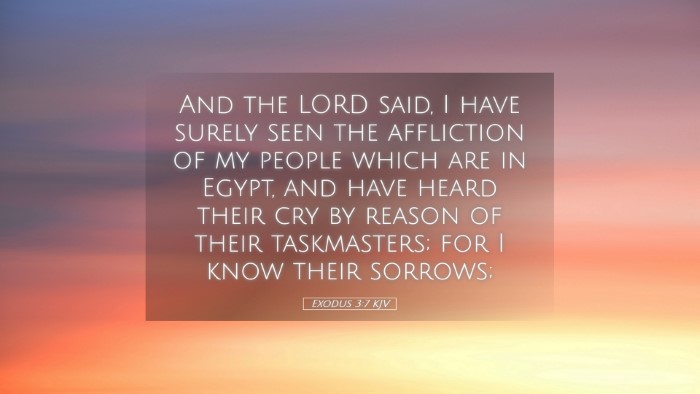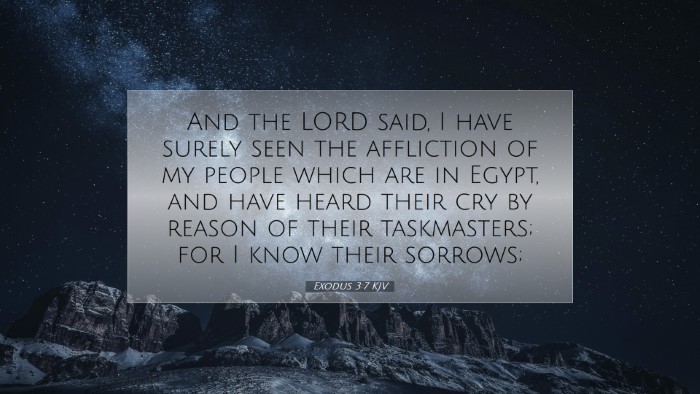Commentary on Exodus 3:7
Verse: "And the LORD said, I have surely seen the affliction of my people which are in Egypt, and have heard their cry by reason of their taskmasters; for I know their sorrows."
Introduction
The verse Exodus 3:7 serves as a pivotal moment in the narrative of God's communication with Moses at the burning bush. It reflects God's intimate awareness of the suffering of His people and sets the stage for His impending deliverance. This commentary synthesizes insights from various public domain commentators, including Matthew Henry, Albert Barnes, and Adam Clarke, to provide a comprehensive understanding of the passage.
God's Observance of Suffering
Matthew Henry emphasizes the omniscience of God, stating that He is fully aware of the afflictions faced by His people. He notes that God’s recognition of their plight is not superficial but encompasses a profound awareness of their emotional and spiritual struggles. God "has truly seen" implies an active engagement rather than passive observation.
Albert Barnes elaborates on this point by highlighting the depth of God's perception of suffering: "I have seen the affliction of my people." His commentary asserts that God’s sight is not merely physical but includes understanding the root of the suffering and the context therein.
The LORD's Empathy
Adam Clarke interprets the statement "I have heard their cry" as God’s empathetic response to human anguish. Clarke notes that the "cry" indicates not only a call for physical relief but also a spiritual yearning for liberation and justice. God's hearing implies active participation in addressing these needs.
The implications of God’s empathy extend further when contrasted with the nature of the taskmasters. Henry highlights that these oppressors symbolize not only earthly authority but spiritual forces that seek to suppress God's chosen people.
God's Knowledge of Sorrows
The phrase "for I know their sorrows" encapsulates the profound connection between the Creator and His creation. Henry points out that this knowledge is personalized; it relates to each individual’s pain, reinforcing the idea that God does not distance Himself from suffering.
Barnes adds that this knowledge should bring comfort to believers as it assures them that God is acutely aware of every sorrow and anguish that arises in their lives. It reflects a divine promise to intercede and provide relief, which is foundational for understanding God’s redemptive work.
Theological Implications
This verse underlines several theological themes significant for pastoral and theological reflection:
- God's Sovereignty: It reaffirms God's ultimate control over human history and His ability to intervene in times of distress.
- Divine Compassion: The Lord’s concern for His people emphasizes the compassionate nature of God, a theme prevalent throughout Scripture.
- Human Suffering: This passage serves as a reminder of the reality of suffering and God's promise to be present with those who suffer.
- Call to Action: The acknowledgment of suffering leads to God’s eventual command to Moses, indicating that divine knowledge is often linked to human action.
Practical Applications
For pastors and theologians, Exodus 3:7 prompts several practical applications:
- Preaching on Suffering: The reality of human suffering must be addressed in sermons, assuring congregations of God's awareness and compassion.
- Pastoral Care: Understanding God's empathy encourages pastors to engage deeply with the struggles of their congregants, reflecting Christ's compassion.
- Encouragement for Prayer: Since God has "heard their cry," believers should be motivated to cry out to God, trusting in His responsiveness to their pleas.
- Action in the Community: The recognition of God’s call to Moses signals a theological imperative to serve those who are oppressed and marginalized in society.
Conclusion
Exodus 3:7 serves as a profound reminder of God's awareness and empathy towards His people. This commentary, drawing from the insights of Matthew Henry, Albert Barnes, and Adam Clarke, highlights not only the nature of God in relation to suffering but also the responsibility of the faithful to respond to the cries of those suffering. It is a powerful call to recognize God's presence in pain and to act accordingly in love and compassion.


